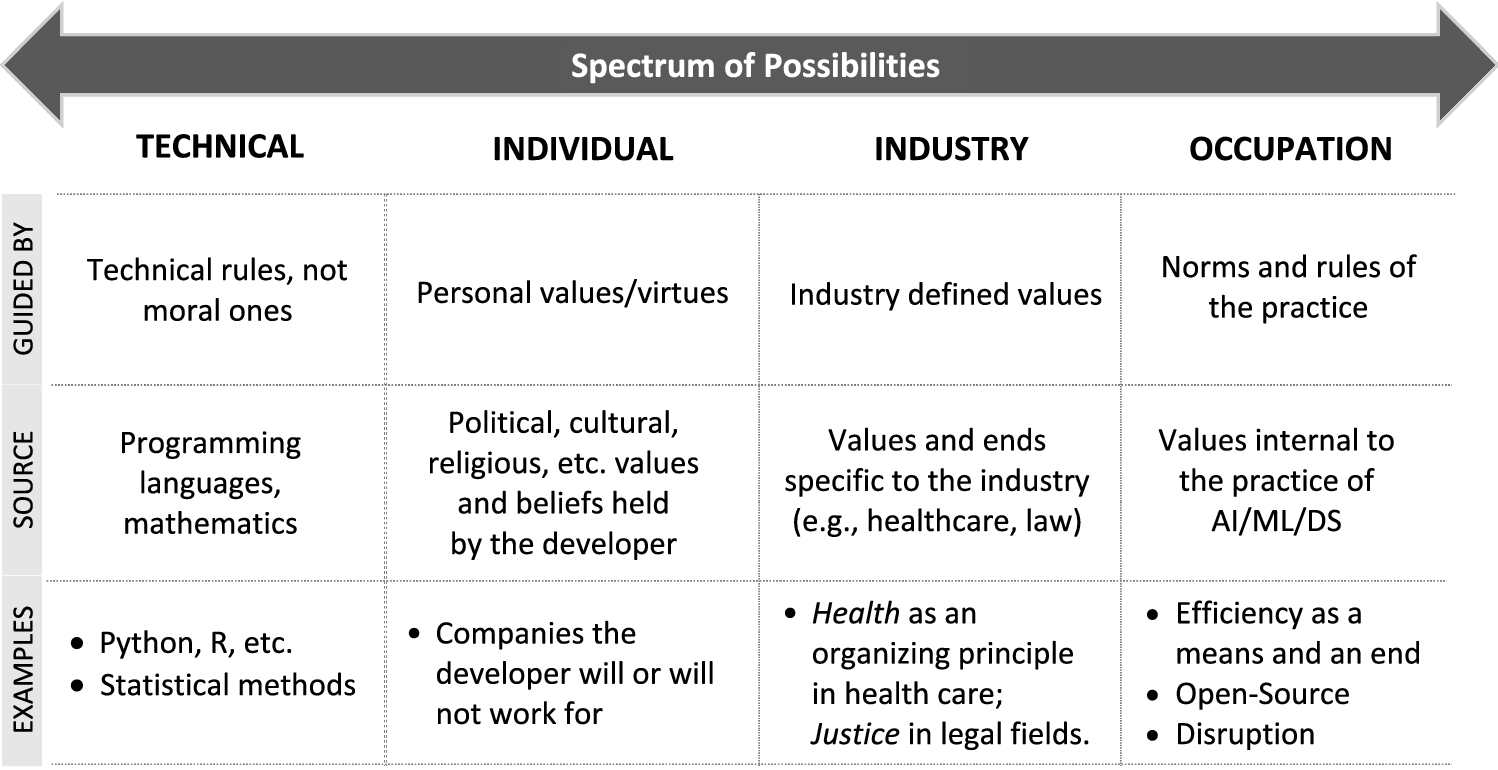This has been inspired by a find online when I tried to confirm the plural of conundrum. For folk now fretting, it's generally accepted as conundrums, but the thread is a reasonable representation of some debates on AI ethics... and a clue as to why ethics is a dirty word to so many developers, at least behind closed doors.
I've navigated both those worlds as an increasingly desperate mediator. Translating reality of resource constrained development in one direction and need to pause for a little more thought in the other, while trying to field and integrate questions from security, privacy, quality, data governance, legal, and audit.
ETHICAL CONUNDRUMS - What is the correct plural of conundrum?
Dictionary Adherent
Conundrums (OED).
Common Usage Supporter
In English : conundrums. It seems obvious really.
Etymology Explainer
Conundrums. Contrary to what one might think, it is not a Latin word, and is described in my dictionary as 'Ety. dub.' If it was Latin it would be conundra. But it ain't, so it isn't.
This Wired acricle highlights multiple ethical conundrums and a number of ethical dilemmas (where there is no good choice, just shades of ethical grey to navigate).

The speed to market vs ethical balance gap is sometimes better bridged, but not before fights break out over language. That's either tacit or explicit. Developers can tell at 20 paces whether someone has half a clue about technology, ditto for academic ethicists with the foundations of philosophy. We all have shibboleths and it takes professional confidence and maturity to create good hooks for translation. It takes even more decisive effort to accumulate agency. Means and opportunity to reinforce bridges and move to make a concrete difference.
Latin Purist
Surely the correct plural of 'conundrum' is 'conundra', given its Latin origin. That the OED gives it as 'conundrums' is no surprise - in an age when even the BBC refers to "stadiums" and "forums", perhaps those authorities which were once held to be sacred and invoilate can no longer be depended upon to maintain standards.
Linguistic Evolutionist
No, those authorities describe the language at the time they were written. Insisting on giving Latin and Greek words that have become part of the English language their generic plurals is mindless pendantry divorced from simple communication. For instance, 'agenda' is a singular in English but derives from the plural of a Latin gerundive. If you have five meetings you have five agendas. Wake up and smell the English!

Otherwise it's 3 knock down drag out rounds of 'But you should...' 'But we don't have time / money / influence...'. 'But think of the impacts....' 'But we don't have time / money / influence...'. 'But it is vital for society...' 'But we don't have time / money / influence...' then whatever it is goes live, the risks get filed, and ethicists write up, summarise, and report to sponsors.

Balanced Communicator
Linguistic Evolutionist is of course correct, inasmuch as the key to communication is being understood. However, the questioner requested the correct plural, rather than the one which has come into common usage (through the evolution of the language, laziness, and the decline of the teaching of classics in schools). I wonder if Linguistic Evolutionist also refers to hippopotamuses, octopuses, or referendums...
Classical Pedant
I hope that Linguistic Evolutionist says octopodes not octopi, given that octopus is 3rd declension Greek not 2nd declension Latin. Actually I am sure he does, but for anyone to whom this is news, the word octopodes has four syllables.
Applied tech ethicists exist. They have more or less battle scarring. People were studying philosophy of AI decades ago. That scarring also applies to many of the other functions mentioned; security, privacy, quality, data governance, legal. I've worked in or with all of them, both doing assurance and responding. In teeny tiny firms where it is one traumatised person with many many hats on and in big highly regulated firms where millions are spent on formal attestation.

So much of that is broken and so much of it comes down to resource constraints, lack of innovation, and things lost in translation. Part of the answer is more standardisation and automation. Some of the most rapid AI uptake is in these areas. You don't shower these functions, viewed as overhead costs, with R&D funding, you pay intermediaries for boxed solutions. These folk grab labour or cost saving life belts with a keen nose for snake oil. There are always people preying on the overburdened, recently regulated, or post breach functions, with no idea about details of the day job and upstream, downstream, lateral workings of complex related systems.
That early adopter and highly critical / skeptical cohort is your ally in this journey. Pick the ones who spend most of their time outside their team.
Classical Pedant
Mr Balanced Communicator accuses me of nonsense when I say that octopus is 3rd declension Greek. I was simply using "is" as short for "is derived from". The reason that it is not spelt "octopous" is that in Latin, "ou" is never a diphthong, so that a Latin word "octopous" would have four syllables. When Greek words are transliterated into Latin, the convention is that upsilon alone is represented by the letter y, while the Greek diphthong omicron upsilon is represented by the single letter u. Matters are complicated by a further convention that the 2nd declension nominative masculine ending omicron sigma is Latinised to "-us".
An example of this is the name of Jesus Christ, which in Latin is "Jesus Christus", with Jesus 4th declension and Christus 2nd declension. The Greek form has the spelling Iota eta sigma omicron upsilon sigma Chi rho iota sigma tau omicron sigma.
Phonetics Expert
Classical Pedant is right in his explanation of "ou" & all that... except that he makes the very common mistake of calling the Greek "omicron-upsilon" a diphthong. A diphthong is a SOUND whose quality changes mid-vowel, such as English "oi", which begins as "aw" & ends up as "ee". The Greek "omicron-upsilon" is a digraph (a sound represented by two letters). But now we're just being pedantic.
But back to the international fight about the plural of conundrum. This is people. These are not folk who are excited about a chatbot writing emails. These folk have encyclopaedic knowledge of their policies, tools, and processes. These folk have the knowledge you need to orchestrate automation and work through any associated risks and ethical conundra (it just sounds nicer, and it's my site, so meh!).
They are also responsible for your grey hair when it's time to make a decision. These folk need to be heard. They are part of the picture. Summarily oust them to speed up change and a whole bunch of stuff will likely stop working, just maybe not immediately. We've done that a few times. See IT service outsourcing, cloud orchestration, and X (formerly Twitter), for details.
Humorous Definist
A pedant is a piece of cloth that flies from the top of the mast of a ship whose captain has a stuffy nose. An overbearing pedant is a bigger piece flying above a smaller one.
American Critic
I was enjoying the debate until all these Americans started joining in!
Enjoy more of that exchange, I did, but I'm a word geek and I know all of these kinds of people, because I am these kinds of people. Working through a conundrum matters, precision matters, but so does means to change things.
P.S. There is another conversation to have here about anonymisation vs pseudonymisation. No-one, if so moved, will have trouble matching chunks of this text to source content. Names are changed, original city and country designations are gone, but that is a can of worms we have to work up to opening.
It is online and the commenters knew it would be public. They did not know I would use the details as a tongue in cheek exploration of tech ethics. They may vehemently object to the characterisations. It may bring lots of unwelcome attention (highly unlikely with my tiny readership), but this then speaks to fair use and data scraping. I am not reusing it to promote a pile on of American Critic for anti-US rhetoric, or using it as a masthead for a newly established association for the protection of pedants as a front for recruiting very particular voters.
The last obvious segue is definitions. We are drowning in misunderstandings. The term AI and it's more or less hyped permutations are too often machine learning, 3 algorithms in a trench coat, or sticky back plastic and wishes.

There is a general lack of consensus on meanings, constant evolution of global language, and endless situational variations, with or without the benefit of voiced tone and embodied expressions, but the models have nailed it... honest guv'nor.

Anyway, that really is enough for now. Here's the source for that discussion and most of the rest of the thread with pseudonymised handles, because I know how few people click through to check provenance of content.

Witty Challenger
Humorous Critic - the plural of 'overbearing pedants' is, of course, 'overbearing pedants.' The SINGULAR, need I add, is 'overbearing pedant.' Now if we could only find one somewhere I could demonstrate...
Etymology Scholar
As the word conundrum's origin is unknown, there is no rule for forming its plural. However, the only viable methods are to follow either the convention of adding an -s or, in imitating many Latin plurals, supplanting its ultima 'rum' with 'ra'. Both are equally correct and intelligible.
Assertive Voter
The plural of conundrum is conundra.
Poll Proposer
This has all been slightly entertaining reading. I think we're at a point where a poll would be nice. "How do you prefer to pluralize 'conundrum'?" My vote, which would be but one of scores, would be 'conundra'.
Simplicity Advocate
Enough, already! One conundrum is enough. Let's just use the simple addition of 's'. And, it ain't Greek to me.
Spelling Inquirer
"Similarly, any form of the plural of "conundrum" which conveys the meaning to the intended audience is a correct plural." Does this mean that "connundrums" is a correct plural? I'm sure it would convey the meaning.
Latin Usage Supporter
Following generally accepted Latin plurals currently in use (curriculum to curricula), I lean toward the conundrum/conundra relationship between singular and plural usage - primarily because the Latin plural is far less awkward when spoken and far less likely to be challenged when written.
Grateful Observer
One of the conundrums yet to be resolved in my life is how one can become so involved in an esoteric and light-hearted discussion being carried on by others some half a world away. My only contribution to this exposition of erudition is to suggest the proper adjective for the antagonists herein is much more appropriately stated as "entertaining pedants" than the allusion to unidentified "overbearing pedants." Thank you all; I now feel comfortable in my own penantry using either conundra or conundrums, depending on the sense of humor of the audience.
Pedantry Enthusiast
I have sat here engrossed for half an hour after an engaging debate at work today where some suggestions included 'conundri', 'conundrae', 'conundinomie', 'conundrinopigomipingus' - all of which I dismissed as being utterly uneducated guesses. I do not believe in the concept of overbearing pedants. Pedantry is a rare and beautiful thing these days and the mere sniff of it brings joy to my heart. So my hearty congrats to all of you who felt moved enough by this topic to contribute. By the way, the plural is conundrums. But I think conundra sounds posher.
Humorous Definist
A pedant is a piece of cloth that flies from the top of the mast of a ship whose captain has a stuffy nose. An overbearing pedant is a bigger piece flying above a smaller one.
American Critic
I was enjoying the debate until all these Americans started joining in!
Literary Humorist
Cottleston Cottleston Cottleston pie, I fly can't bird but a bird can't fly... - A. A Milne. Or, there seems to be a(n) hearty prevalence of perversity among these posters... How can a conundra (my favorite, it sounds cleverer than conundrums - although not nearly as good as conundrinopigomipingus, which is suitably preposterous in these circumstance) bring about so much meaningless argument? Wittgenstein would be chuckling if he could get a hold of this webpage...
Historical Linguist
Why not let the old fox have his way? Ben Jonson has the OED's earliest plural: 1605 B. JONSON Volpone V. ii, I must ha' my crotchets! And my conundrums! In fact, no other form of the plural appears in the OED. As a rule, English tends to Anglicize, which is why we see forms such as "indexes" instead of "indices." The wonder is that we retain the morphology of loan words at all.
Wordplay Enthusiast
Surely two octopusses equals either one hexadecapus or one cat o'nine tails, one of the felines hailing from the Isle of Man. I decline to comment further, on grammatical grounds. It's a bit of a conundrum, really.
Linguistics Student
I have truly enjoyed this discourse. Normally I don't respond to things like this, but I wanted to thank all of you, no matter from which side of the pond, for a delightful half hour. All I wanted was to find the "correct" plural of "conundrum." None of my five dictionaries helped. But as I was reading through this, something my linguistics professor once said popped into my mind: "If you, as a native speaker of a language, utter a sentence that is heard and completely understood by another native speaker, then what you have said is grammatically, phonetically, even completely semantically correct." So I'll use "conundra" when I am among pedants and "conundrums" when I address the rest of the world.
Google Statistician
To go by Google (that crowd-sourcing arbiter of all factoids, aka Sheikh Google in Saudi Arabia), it must be conundrums (838,000 hits), not conundra (only 57,800 hits), though I'll stick with the latter just to be persnickety (192,000 hits).
Latin Scholar
I must say that this is the most entertaining internet discussion I think I have ever read. The plural of conundrum would be conundra if the word were Latin, but it's not. The earliest attestation of the word is in the late 16th century, in English. Therefore, though it appears to be modeled on Latin in the fashion of nonsense words like "hocus pocus," it is not Latin. If you want to be pedantic, by all means do, since many of you have been doing a fantastic job of it thus far, but from my view as a Latin scholar, conundrums is the preferable form. The plural of drum is drum, not dra, and why? It, too, is not Latin.
Greek Phonology Expert
Messrs. Classical Pedant &c.: Just to add to the pedantry—Greek omicron-upsilon didn't represent a diphthong at all, but is generally considered, at least, to be a long u (as opposed to the unmarked, but existent, long upsilon, which represented the fronted version of that vowel like the German ü), so it made sense for speakers of Latin to transliterate it as u.
Multilingual Humorist
The plural of conundrum is no more conundrum than the plural of Sultan is Salawtin, or the plural of Vizir, Vozaraw. Sorry about the lack of fonts, but it has not kept the Greeks out of this discussion.
Australian TV Enthusiast
I think the plural of conundrum should be conundra, as it sounds and looks more logical. There is a program on the ABC in Australia, called "Letters & Numbers" and has a segment on conundrums, where the word is given in a mixed version and contestants have to work it out, as do viewers. A special dictionary could be made up of conundra.
Wordplay Relativist
Conundrums vs. conundra: it all comes under the Theory of Relativity. If you're in the tundra then it's conundra. If you're in the doldrums then it's conundrums. What could be simpler?
Grateful Reader
I must reiterate the joy I have had reading these comments. As a schizophrenic author (ie pedant and realist at the same time) I have found everyone's input most informative, funny and a joy to peruse. Many thanks "Hoc in absentia"
Historical Etymologist
Dear Conundrums, Please note that "conundrum" is first attested in Thomas Nashe's Saffron Walden (1596), where it is used as a pejorative term for . . . wait for it . . . pedants. ("So will I...driue him to confesse himselfe a Conundrum, who now thinks he hath learning inough to proue the saluation of Lucifer.")
Dictionary Adherent
FWIW...Webster's 2nd (the gold standard) gives it as "conundrums" (origin unknown)
Australian Wordsmith
What a wonderful forum! Thank you all for the entertainment and fun. Incidentally, there is a small town in Queensland that goes by the name of Caloundra. A twin town would be Caloundrum? I would rest my case, however obscure, were it not for the plethora of dipthongs around Melbourne as the weather warms.
Hocus Pocus Ponderer
Pleasant reading, and a welcome respite. Thank you all. An earlier post mentioned, among the examples of faux-latinate coinage, "hocus pocus," which sets me to wondering about its proper plural. "Hocus Pocii," I suppose, since the alternative, "Hocii Poccii," would cause us to put the right foot in, and put the right foot out and so on, and I'd hate to see it. As to the original question, I favor "conundra" for elegance' sake, but since the question came up for me in the context of drafting an email to an editor-in-chief, I put both in and suggested he decide. I'll report back if he deigns to decide. Keep up the good work, and a happy new year to you all.
Delighted Discoverer
Pure brilliance. I thought it was conundra, and 'googled' it to check. I confess I am none the wiser, but much happier nevertheless.
Magus Defender
'Magus' may have started off as a Persian word, but it came to us through Latin, so 'magi' as the plural is sound.
Absurdist Linguist
Because the word is a false Latin word with its origins in humor, one could take two approaches here depending on the effect one desires to produce. If one accepts the word as a common English word now divorced from its absurdist origins, one might simply add an s to make the plural. If one wants to play on the absurdity of the false Latin origins of the word and increase the volume and intensity of the effect, one might write or say "conundra." The silly cleverness of the absurd Latin plural of an absurd false Latin English word might induce a smile from the reader or listener if delivered in a tongue-in-cheek tone. Wink wink. I'm being silly here. Isn't this nonsense?
Rhyme Seeker
I was just looking for a word to rhyme with tundra - but my you all make the study of linguistics sound like fun!
Pun Enthusiast
Could it be just simply 'conundrum!' A hard question which the answer will involve a 'pun'=deliberate use of a word having several meanings or the two words having the same sound but different meanings
Appreciative American
Conundrums. But all of you guys are really funny, brilliant and fascinating. No conundrum there.
Breakfast Humorist
Conundrums. I used to go to a cafe that did a "Full English". The waitress would ask: "who ordered the breakfastses". Possibly would cause some contributors above a bout of indigestion.
Latin Quipper
De pluralibus certe est disputandum!
Literary Observer
I am another to have enjoyed the exchanges. However, I am excited to report (from a restaurant high on Etna) that the entire discussion has been taken to a new level by its appearance as a footnote (p 42) in the latest Terry Pratchett, "Snuff". An accolade to be cherished!
English Purist
The English language is sacrosanct and cannot be changed upon the whim of a tabloid newspaper or the BBC - and certainly not by foreign websites such as Google. There is correct English, and there is incorrect English. Pedantry plays no part in the use of correct English.
Amused Classicist
In reply to Literary Humorist, I quote 'Crustulum crustulum crustulum cru, cano aenigmata, canis ac tu?' This discussion has been illuminating and entertaining with respect to my dissertation on the subject of nonsense Latin words and the translation of English nonsense poetry into Latin, and your quotation from A. A. Milne has made my day! Signed, An Amused Classicist
Cereal Inquirer
Yes, but what is the plural of Weetabix?
Kiwi Responder
I vote for "Weetabixen". Or, in New Zealandese, "Weet-Bixen".
Thoughtful Linguist
Well, I think 'conundrums' will get the point across, but it doesn't sound as nice as 'conundra', nor does it show much evidence of thought/consideration about the usage of that plural.
Irish Referendum Expert
Referendum is not (as it might appear) a Latin 3rd Dec. Neuter noun (it is a gerund) and ought to take the plural 'Referendums'. We have a lot of these in Ireland.
Microsoft Truster
Guys. Chill. I checked with Microsoft Word, it's "conundrums". Peace.
Indian Grammarian
The word conundrum, of unknown origin, means confusing and difficult problem or question, or a riddle, often depending on a pun, or any perplexing question or thing. It can only be felt and not touched, thats why it is an abstract noun. If one goes by a lexicon, conundrum is pluralised as conundrums.
Undrum Theorist
Alright, you've caught me. I am a reformed man, no longer automatically prejudiced against what I had, heretofore, thought of as a canker on the tongue of of fluid discourse: pedantry! So, without Googling, may I request a definition from the wags and sages of these rags and pages? Is there such a thing as an undrum of which a conundrum would be a more complex example? And as for the ethical kind, what would that be? Would it be the lesser disgrace to have one's undrums questioned?
Transatlantic Observer
As a rule of thumdrum, conundrums brings American pedants out in hives and conundra English ones. Vive la différence.
Latin Rule Enforcer
It's not of Latin origin, so using Latin rules wouldn't make sense. It's origin is unknown, so one should default to English pluralization rules: "conundrums" is the plural. In response to Hocus Pocus Ponderer, the "-ii" ending is only for words that already end in "-ius", such as "radius". If "hocus pocus" were an actual Latin phrase, the plural would be "hoci poci" if both words were second declension masculine and not third or fourth declension.
Oxford Theorist
Conundrum is not a Latin word, but the best theory for its origin is that it was invited as a parody of a Latin word by students, probably at Oxford University. It is not unreasonable that a parody of a Latin noun should have a Latin plural, so I'll go with Conundra.
Lego Defender
Don't know but I wish the Americans would stop referring to a lot of Lego as Legos.





